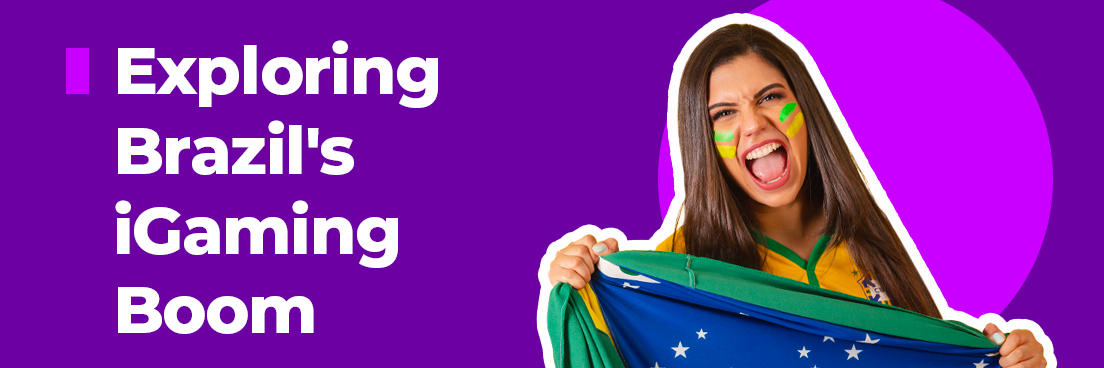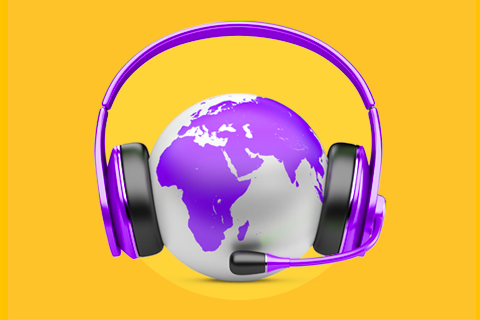Brazil's iGaming Revolution: Navigating New Regulations

New regulations instituted at the end of 2023 have marked a significant shift in Brazil's approach to betting. From a nearly 80-year ban on this activity, Brazil has become a fully regulated market.
Online sports betting and casino gaming are now legal in Brazil, one of the world's largest economies. With over 217 million people deeply passionate about sports, this change is an unprecedented opportunity for iGaming operators and platform providers.
In this article, we explore the online gambling landscape in Brazil to uncover opportunities, identify challenges, and provide valuable insights to investors interested in expanding into this market in 2024.
Betting Overview in Brazil: Past and Present
Unlike other jurisdictions around the world, the legal situation regarding gambling in Brazil over the past few decades has not been so favorable. Before 1941, gambling was considered a popular form of entertainment. In fact, the entire country enjoyed a vibrant casino culture.
However, the situation changed dramatically with the introduction of the Criminal Contraventions Act of 1941, which banned gambling entirely. President Eurico Gaspar Dudra reinforced this measure in 1946 by decreeing an absolute ban on all forms of gambling. This development, attributable to different moral and social reasons, resulted in the removal of casino licenses, leading to the definitive closure of gambling establishments in the country.
This situation continued for decades. In fact, for a long time the only legal game in Brazil was poker, as it was considered, as it is today, a game of skill rather than chance. Despite this ban, there was an underlying appetite for gambling among people. However, the first initiatives to regulate gambling came in 1971, with the legalization of the Federal Lottery (owned by the State) and the support for non-commercial bingo and horse racing in the following years.
Online betting began to gain attention in the mid-1980s, increasing pressure on the government to regulate it. While Brazilian-based betting companies were restricted, foreign sites were accessible, benefiting from the popularity of sports among Brazilians. In 2018, Law No. 13,756/18 set the stage by legalizing sports betting, though an effective regulatory framework was only established in late 2023.
In Brazil, betting has been illegal for more than eight decades. However, this situation changed in 2023, when the Chamber of Deputies approved a bill to regulate sports betting. Initially, Decree No. 11,775 was enacted, establishing a foundational regulatory framework for sports betting in Brazil, detailing licensing processes and compliance requirements. This decree marked a significant first step towards the legalization of betting, allowing both physical and online operations to obtain licenses. Later, Decree 14.790, which outlines the regulatory framework for betting in Brazil, officially became law on December 30 of the same year. This decree further refined and expanded the initial framework by providing additional guidelines on advertising, consumer protection, and penalties for non-compliance.
Although some types of physical operations are still prohibited, casinos and sports betting platforms can now obtain licenses, which opens the door to the entry of new sites into the country. Specifically, this law aims to boost economic growth through the creation of new jobs, encouraging foreign investment and tourism.
It is well known that the iGaming industry has evolved rapidly in recent years. As such, this is a great opportunity for foreign and domestic operators looking to participate in this new market, although understanding the prevailing legislative and regulatory changes is essential to achieve this. Our team of experts has detailed knowledge of the legal environment in Brazil to ensure that operators acquire the correct licenses and certifications, as well as implement the appropriate procedures and strategies to comply with the relevant legal requirements.
Regulatory bodies and responsibilities
With the new laws coming into force, the Brazilian Ministry of Finance (Ministério da Fazenda) is responsible for clarifying some practical aspects of this new regulation, as well as exploring the application of possible changes to this legal framework in the future. However, other bodies also play significant roles in this regulatory framework:
1. Secretariat for Prizes and Betting (SPA):- This newly established body within the Ministry of Finance is primarily responsible for issuing licenses and ensuring the integrity of sports events subject to betting.
- It collaborates with the Ministry of Sports to maintain the unpredictability of sporting outcomes.
- Works in conjunction with the SPA to safeguard the integrity of sports betting and may be involved in regulating which sports can be included in betting activities.
- Responsible for tax collection related to gambling activities, ensuring compliance with tax regulations.
- Protects players from illegal practices and ensures that consumer rights are upheld within the gambling sector.
- Monitor compliance with AML measures, ensuring that operators implement effective protocols to prevent money laundering and terrorist financing.
The main responsibilities of these institutions (in relation to betting) include the following:
- Development of responsible gaming measures: suggesting and implementing policies and strategies aimed at promoting responsible gaming.
- Regulatory oversight: ensuring that the operations of these sites are legal and transparent.
- Taxes: imposing tax levies and collecting taxes from any gambling-related activities.
- Licensing: Review applications and issue licenses.
- Consumer protection: protecting players from illegal practices.
- Compliance with AML measures: monitor measures to prevent money laundering and terrorist financing.
- Economic impact: assess the financial risks and benefits that this economic activity can provide to the country.
Regulatory Requirements and Responsibilities of iGaming Operators
Obtaining an iGaming license in Brazil can be a complex process. Operators seeking to enter this market must navigate a rigorous application procedure that ensures compliance with current legal and regulatory standards.
Requirements for License Application
To submit a license application, operators must provide extensive documentation, including background checks on owners and key personnel, detailed business plans, financial projections, and operational specifics. Additionally, applicants are required to submit financial statements and documents demonstrating adherence to anti-money laundering (AML) measures and Know Your Customer (KYC) protocols.
Once a license application is received, the regulatory authority evaluates the applicant's suitability against well-defined technical standards concerning transparency and safety. If approved, the operator must pay a licensing fee of 30 million reais (approximately 6.10 million dollars), which is valid for five years and allows the promotion of up to three additional brands. The effective tax rate for sports betting and online gaming is expected to be between 23% and 26% of gross revenue. This includes federal social security taxes (PIS/COFINS) and local service taxes.
Licensed operators also have to pay monthly inspection fees, which can range from R$54,419 to R$1.9 million (about US$10,300 to US$361,000), depending on their adjusted monthly revenues.
It's important to note that players must pay a personal income tax of 15% on their winnings that exceed the income tax threshold. This tax is calculated annually, with payment due by the last working day of the month after the calculation.
Federal Licensing Framework
A significant transformation in Brazil's gambling landscape occurred with the enactment of Federal Law No. 14.790 in December 2023. This law shifted licensing from a state-level framework to a federal one, prohibiting individuals holding state licenses from applying for federal ones. This change was prompted by a September 2020 ruling from the Federal Supreme Court, which established that states and municipalities possess equal rights with the federal government to regulate lottery games, including fixed-odds betting.
Law 14.790 clarifies the powers of states regarding online gambling, mandating that state regulations align with federal legislation. State licenses now lag behind federal licenses due to restrictions on obtaining multiple licenses across different states in Brazil and limitations on advertising, which must target players physically located within that jurisdiction. Nonetheless, licenses granted under the previous state-level framework before July 24, 2023, will remain valid under their existing terms.
Local Presence Requirement
Under this new regulatory framework, operators wishing to offer fixed-odds sports betting in Brazil must establish a subsidiary within the country and ensure that at least 20% of their ownership is held by a local shareholder. This requirement further emphasizes the importance of local engagement in the Brazilian market.
This transition from state to federal oversight signifies a pivotal shift in Brazil's online gambling regulatory landscape, paving the way for a more unified and transparent system that can better serve both operators and their players alike.
To maintain a betting license in Brazil, it is also necessary to comply with a series of responsible gaming regulations and practices. In this regard, operators must:
- Promote/advertise your services in a responsible and socially conscious manner, in order to protect vulnerable groups from irresponsible or excessive gambling.
- Verify the identity of the bettors and ensure that they are over 18 years of age.
- Implement Know Your Customer (KYC) protocols, anti-money laundering (AML) measures and anti-terrorism controls among users.
- Create a local customer service, providing assistance 24/7 in Portuguese through electronic and telephone channels.
Legal challenges, difficulties and strategies for success
As we mentioned, obtaining a gambling license can be complicated, and navigating the bureaucratic landscape required to do so requires forethought and detailed planning.
A common pitfall is underestimating the complexity of this regulatory framework, which can lead to delays, including rejection of the license application. This legal framework is new and evolving, and is therefore still subject to change. However, failure to keep up with these changes can lead to non-compliance penalties and even license revocation.
Taking a proactive, informed and responsible approach will enable your business to comply with the necessary legal requirements and enjoy sustainable growth within this promising new market.
Top 5 tips for success in the Brazilian market in 2024
Dedicate resources to regulatory compliance
A comprehensive understanding of Brazil’s betting regulatory landscape is essential. To do so, we advise getting an adequate understanding of the region and building a strong legal team. This will help you ensure that your brand’s operations are aligned with Brazil’s legal standards and requirements.
Proactively collaborate with regulatory bodies
Be proactive, not reactive. Working with local and national authorities can provide you with information and insight into potential upcoming regulatory changes. This can help your brand adapt more easily to these changes.
Keep your documents safe and secure
Implement a meticulous record keeping system, especially for player information and financial transactions. All records must be kept safe and secure, to demonstrate brand transparency and strengthen trust among stakeholders.
Invest in responsible gaming initiatives
Brazil, like other major markets, takes social responsibility seriously. Integrating tools that promote responsible gaming practices into your platform demonstrates a genuine commitment to player well-being and enhances your brand's integrity. This is where Uplatform’s suite of tools becomes invaluable, offering features such as self-exclusion options, deposit limits, and reality checks. These tools help ensure that your players can effectively manage their gambling habits while aligning with regulatory standards, fostering a safer gaming environment that builds trust and loyalty among users.
Build Valuable Partnerships
Most times, it is very difficult for operators to start up or maintain their iGaming business by themselves. Therefore, it is advisable to partner with experienced providers like Uplatform who understand the local terrain of the region. These partnerships can provide invaluable insights into player behavior and preferences, enabling brands to tailor their services effectively.
Opportunities and prospects for the future
The enactment of Law 14.790 has presented many challenges, but 2024 is set to be a transformative year for the iGaming sector in Brazil. Initial investors will have the opportunity to navigate the prevailing volatility and uncertainty of this new legal framework effectively. The potential of this market is undeniable, with Brazil's vast population and projected revenues of $1.97 billion by 2024, along with an anticipated annual growth rate of 15.39% through 2029.
For forward-thinking operators and businesses, now is the right time to embrace this new legal environment and seize the opportunity to be among the first to enter the market. And as you consider your next steps, Uplatform is here to support your journey.
Our platform can help operators navigate Brazil's complex regulations while encouraging responsible gambling. Uplatform has three key components: Usports, a sportsbook that covers both traditional sports and Esports; Ucasino, featuring an online casino games portfolio tailored for optimal operational success; and Utools, which provides essential tools for managing and marketing your business. With our knowledge and tailored solutions, you can easily tap into Brazil's growing iGaming market while staying compliant and ensuring a safe online gaming experience for your players.










